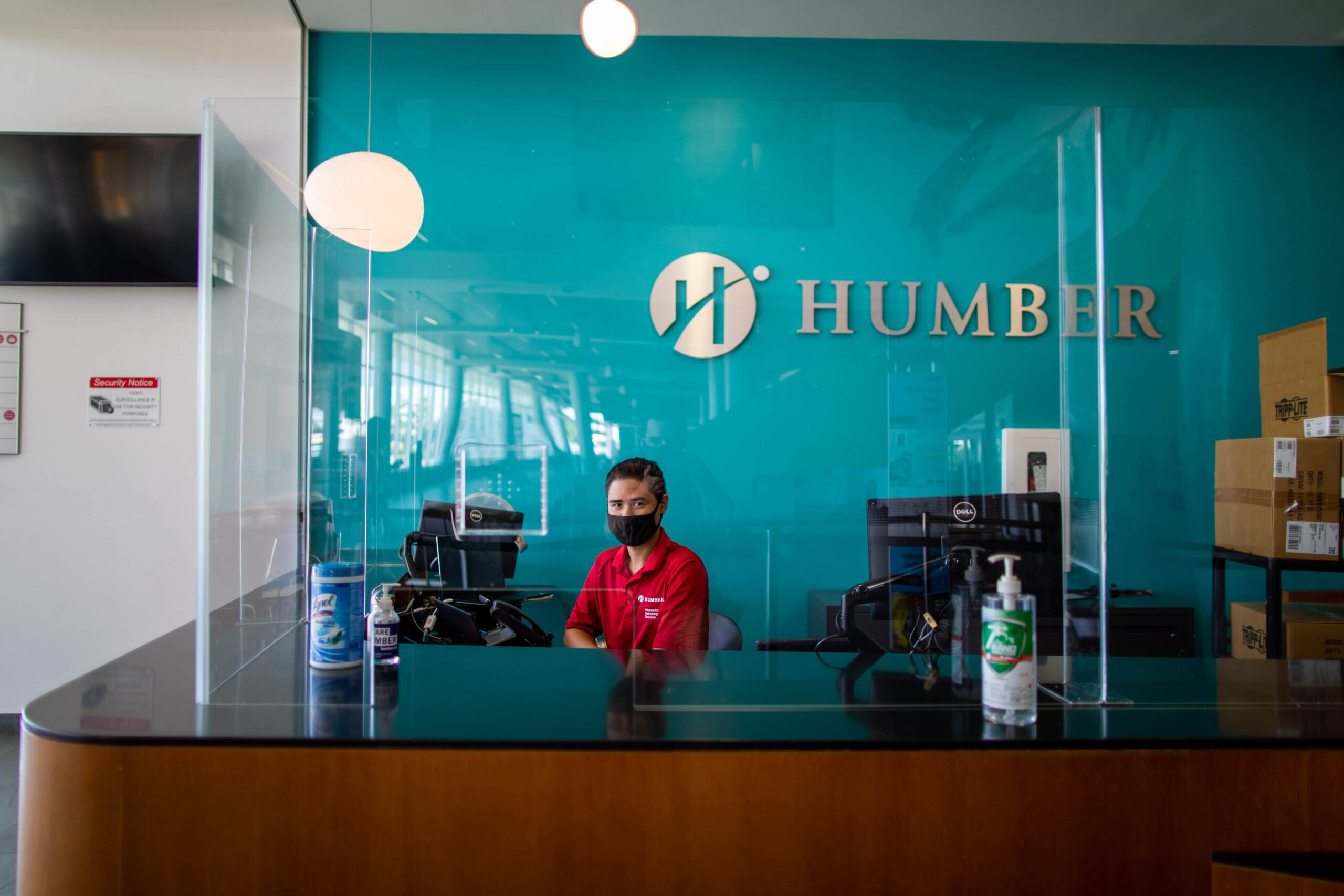Humber journalism students received an email from Humber administration Wednesday morning, letting them know they were now exempt from a campus policy many had complained was restricting what they could film or report on campus.
“The policy was never intended to prohibit student media from on-campus reporting or carrying out their assignments,” wrote Derek Stockley, Humber’s Associate Vice-President of Academics.
Humber introduced its Temporary Use of Space Policy (TUSE) in 2019 to ensure safety on campus during events.
Outside organizations and student groups were required to apply for permits in order to set up displays, information tables, performances, or film shoots. The application form requested 15-days notice for all events.
Humber journalism students first ran into problems filming stories on campus in November, when they were asked to apply for permits in advance.
Last Thursday, security was called on two students who tried to take photos outside of the campus Starbucks location.
That drew the attention of many on social media, and lead to the Canadian Association of Journalism calling for Humber to end the practice.
“I’m glad it’s been addressed. I’m disappointed that it required a sort of public shaming to get to this point,” said Dan Rowe, program coordinator for Humber’s Lakeshore campus journalism program.
Humber’s associate director of communications, Emily Milic says while journalism students are exempt, the policy remains in place.
“There was a bit of a misunderstanding on the implementation. So there were some meetings that were had internally about trying to figure out how to get everybody on the same page about the implementation and ensure that students weren’t encountering any of these concerns,” said Milic.
Going forward, the journalism faculty will provide students guidelines about which parts of campus are permitted for filming, and will provide students with press passes.
“I think this also shows that it didn’t take much to actually fix this, it seemed to just require people sitting down. Like, it’s something that could have been resolved much sooner,” said Rowe.
Rowe comments on the legwork that was done by students and staff to fight for press freedom and said this energy should persist in all cases where press freedom isn’t offered.
“I think it shows the power of speaking up,” said Rowe. “You have to be persistent in these claims, not just in this case but in general when it comes to matters of press freedom and other sorts of basic human rights.”

